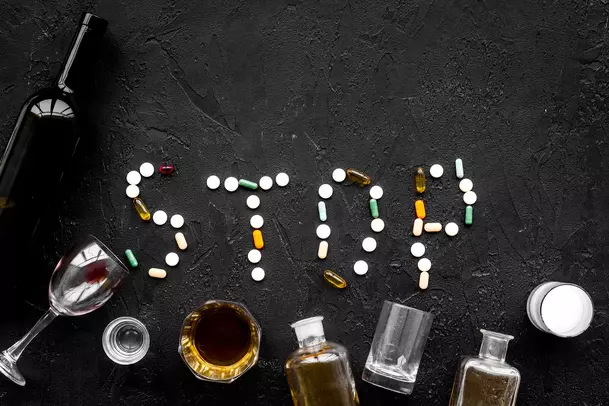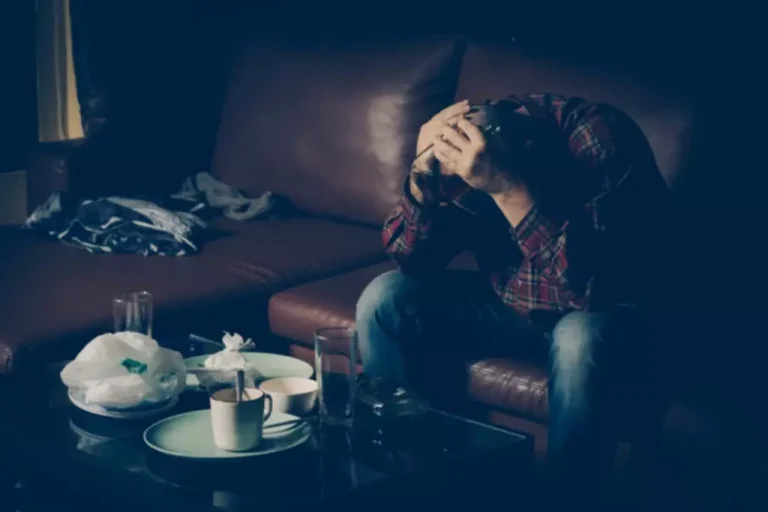Can`t Sleep Sober? Here`s What You Can Do

It is not exceptional for people to fall asleep by tipping a glass or two. It helps for a while, but then extreme problems begin.
It’s getting late, and you can’t sleep without alcohol. Don’t think about sleep. A glass of wine, you decide, will help. And indeed: alcohol reduces brain activity, so your thoughts are no longer spinning endlessly, and you forget about the day’s pressure. The essential heaviness in bed will soon follow. When you’re drunk, you fall asleep faster. But then comes the big problem.
As the night goes, alcohol takes revenge, and sleep irritations appear: sleep becomes restless, and you wake up more often. It advances the urge to urinate and dries out the body. Anyone who has drunk large amounts of joy juice should first go to the toilet at night and then to the kitchen to put out the typical alcohol fire with water or juice. Luckily, there are some ways to fight the urge to drink before bed.
How does alcohol affect sleep?
There are numerous myths around alcohol. For instance, a daily glass of wine is believed to enhance the cardiovascular system, while intermediate alcohol consumption reduces the risk of dementia. At least as well known is the theory that joy juice helps with insomnia. Consequently, many people regularly drink beer, wine, or spirits to sleep better in the evening or at night. It is entirely unsuitable as a sleeping pill and reduces the chances of restful sleep.

Take back control of your life and start on the road to recovery now.
Insidiously soothes and lulls
It is vital to remember two types of processes are involved in the work of the central nervous system — excitation and inhibition. The preliminary active substance of alcoholic beverages — ethanol — improves the activity of gamma-aminobutyric acid, which is responsible for inhibition, and inhibits the activity of glutamic acid, which excites the nervous system. Consequently, the brain reacts more harmful and slower to stimuli but calms down faster. In this state, falling asleep is much easier.
In addition, ethanol enhances the synthesis of adenosine in the brain, a substance which stimulates sleep and represses activity. Researchers believe adenosine concentration in the brain increases during wakefulness and gradually decreases during sleep. It is not unexpected a drunk person turns off faster, mainly if he is tired, because the body seeks to get rid of excess adenosine. Alcohol promotes the rapid release of dopamine and endorphin, hormones which also have a beneficial effect on sleep.
Alcohol instead of an alarm clock
Why, after heavy drinking, do most people often get up with a headache and sleepy? In an adult who typically perceives joy juice, it completely disappears from the blood in the first four to five hours of sleep, even with a shock dose of alcohol. During this period, there is a wakefulness rebound — a state in which a person sleeps superficially and often wakes up. No wonder they say the dream of an alcoholic is intense but short.
The sooner the body processes alcohol, the faster the person opens his eyes. Researchers have not yet figured out what physiological processes cause the wake to rebound fully.
Moreover, alcohol is dangerous to people suffering from sleep apnea — the cessation of pulmonary ventilation for 20-30 seconds. In other words, the sleeper is suffocating. It is illustrated by the fact ethanol depresses the respiratory center of the medulla oblongata and suppresses the awakening reflex when breathing stops.
The duration of sleep depends on the dose of alcohol taken. Scientists have found: using 0.16 grams of ethanol per kilogram of human weight increases the total sleep time but shortens it.
The first step towards addiction
If you regularly take a small portion of alcohol at night, it is fraught with addiction. The fact: the body quickly gets used to a small amount, stops sensing it and requires more so as not to lose the calming effect. Scientists have found addiction occurs within three days. Then, a glass of wine at night will lose its hypnotic effect.
Nevertheless, insomnia itself can provoke alcoholism. Researchers have found: people who have trouble sleeping are twice as likely to be addicted to alcohol than those who don’t. Insomnia and alcoholism form a vicious circle, which is most often broken only with the help of a doctor.
Alcohol abuse not only does not bring the embrace of Morpheus closer but also harms the vital organ of the body — the liver. It is there that ethanol is mainly processed. It produces acetaldehyde, which disrupts the potassium-sodium pump in the cell membrane. As a result, redox processes in mitochondria, the organelles that supply cells with energy, slow down. At the same time, acetaldehyde inhibits the breakdown of fatty acids in mitochondria: fats begin to accumulate in cells, leading to cirrhosis of the liver.

Why is it dangerous to drink at night
Alcoholic sleep is different from usual. After drinking due to a malfunction in melatonin production, we fall into a deep, slow sleep without dreams. It lasts longer than expected. But the phase of REM sleep is reduced or completely disappears.
As a result, we feel overwhelmed when we wake up after drinking. Reactions are inhibited, it is challenging to concentrate on something, memory fails. The reasons are clear: the nervous system did not have time to heal. These are not all sleep illnesses joy juice guides to. Here are a few more:
- Morning insomnia. A person wakes up at or before dawn and is no longer able to fall asleep, even though he hasn’t had enough sleep. It is due to the same fallen level of melatonin.
- Sleep apnea. It is distinguished by interrupted breathing during sleep. It usually happens during non-REM sleep, when the muscles unwind. And slow-wave rest, flavored with alcohol, is profound.
- Periodic awakenings in the second half of the night. By this time, the body starts to energetically get rid of processed alcohol with the help of the kidneys and bladder.
Why is it hard to fall asleep without alcohol?
With occasional use, alcohol shortens the latency period for falling asleep but leads to restless and fragmented sleep after you fall asleep. With regular use, there is a loss of a positive effect on falling asleep due to the development of tolerance. After excessive consumption, discontinuing alcohol leads to severe problems falling asleep at night. This relapsing insomnia contributes to the continued use and develops physical and psychological dependence.
What to do to fall asleep?
What about those already so dependent on the drink they cannot sleep without it? If the refusal causes severe insomnia, accompanied by depression, the same intake of sedatives and sleeping pills help. In some cases, you need to endure 5 to 10 days, after which sleep usually returns to normal. With the development of severe (more than three days) insomnia and the development of psychosis, it is necessary to consult a narcologist (prescribing drugs that alleviate the withdrawal state) and a psychotherapist (recommendations aimed at normalizing sleep).
How to avoid insomnia: tips for healthy sleep
If you want to sleep well and peacefully, you should pay attention to the following:
- Stop drinking alcohol 4-6 hours before bed. Avoid caffeinated drinks in the afternoon.
- Do something relaxing before bed: listen to soothing music, read a book, watch a good, relaxing movie. Computer work, sports, and disturbing conversations should be postponed for the next day.
- Provide a dark, quiet, and cool bedroom with a room temperature between 16 and 18 degrees Celsius.
- You also improve your sleep with proven home remedies. For example, drink valerian tea before bed or take a hot bath with hops or lemon balm.
- Eat a balanced diet: high in protein, low in fat, and low in carbs.
- Drink enough water in between meals.
If your sleep problems are excruciating, regular, or long-lasting and interfere with your daily life, you should see your doctor. A doctor examines the many causes of disturbance and rule out severe conditions as a first step.
A pledge of healthy sleep
In most cases, when you can’t sleep without alcohol, other methods help you fall asleep better and rest more peacefully without drinking alcohol at night. And not only alcohol but also caffeine and cigarettes in the evening should be avoided. Large meals late in the evening also do not contribute to sleep. While sporting events are significant, they should be scheduled in the morning or early evening.
You also need to pay attention to the appropriate environment to get healthy sleep. It includes an excellent indoor climate by adjusting the humidity between 40 and 60% and setting the room temperature in the bedroom between 16 and 18°C.
Don’t skimp on something as simple as a good night’s sleep. Invest a little more in a suitable mattress and a good pillow and thus allow yourself to have an ergonomic sleeping position that you genuinely feel comfortable in. Relaxing evening rituals, such as meditation, reading, or autogenic training before bed, can help you sleep better and rest more.
Electronic devices can also harm sleep — not necessarily due to verifiable health, but their psychological impact. Therefore, you should ban TVs, tablets, and smartphones from your bedroom, even if it’s complicated.
Home remedies to improve sleep
Some people swear by proven home remedies to get restful sleep. Medicinal plants and herbs are particularly well suited, as they often have a relaxing and calming effect. These include, among others:
- Valerian.
- Lemon balm.
- Lavender.
A full bath or a glass of hot milk with honey is also among the home remedies our grandmothers already knew when it came to counteracting trouble falling asleep.
How sobriety affects sleep
When you sober up, one of the things you look forward to is that you can finally fall asleep properly. Unfortunately, when you stop drinking, your sleep can get worse. Nevertheless, this is a necessary measure on the way to recovery!
The first day sober will go much better than expected. You’ll be surprised that you didn’t experience any severe withdrawal symptoms, and even the cravings weren’t too unbearable. Unlike that relatively dull first day, the first night can be challenging. It will be difficult to fall asleep, as your body is so used to passing out drunk that it has forgotten how to fall asleep sober.
As the first month of sobriety passes and the rest of the withdrawal comes and goes, insomnia will stop bothering you. Fortunately, during the first year of sobriety, sleep will gradually improve, and you get your treatment and recovery. You will begin to sleep peacefully without waking up and even go to bed at a reasonable hour. Your sleep will, on average, be much better than when you first stopped drinking.

This can be a difficult journey, but you don’t have to go it alone. Let us be your guide and provide you the environment needed to regain control of your life and begin the path to recovery.
Wrapping up
Although alcohol is effective as a short-term sleep-inducing effect; it does not provide restful sleep. It may be justified in particular situations, but it is exceptionally unsuitable as a permanent solution to problems with falling asleep. The consequences of regular alcohol consumption are not insignificant and even have long-term effects, especially in terms of sleep, during which our body is supposed to repair, and regenerate. Alcohol dependence is also possible.
If you have severe issues with your sleep, it is vital to contact professionals. In the ecosoberhouse.com, people learn to sleep healthy again as part of the help. Sign up for a talk with a professional and get qualified help.




